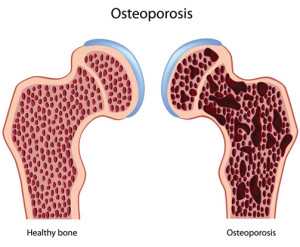Skin lotions & Eczema; Apnea & osteoporosis
Posted on May 29, 2014 by bob in NewsUCanUse
Lack of Emotion, Interest May Signal Brain Shrinkage
Older people who have apathy but not depression may have smaller brain volumes than those without apathy, according to a new study published in an online issue of Neurology®. Researchers noted that just as signs of memory loss may signal brain changes related to brain disease, apathy may also indicate underlying changes.
For the study, 4,354 people without dementia, average age of 76, underwent an MRI scan. They were also asked questions that measure apathy symptoms, which include lack of interest, lack of emotion, dropping activities and interests, preferring to stay at home and a lack of energy.
The study found people with two or more apathy symptoms had 1.4 percent smaller gray matter volume and 1.6 percent less white matter volume compared to those who had less than two symptoms of apathy. Gray matter is where learning takes place and memories are stored in the brain. White matter acts as the communication cables that connect different parts of the brain. If these findings are confirmed, researchers hope identifying people with apathy earlier may be one way to target an at-risk group.
 Osteoporosis and Sleep Apnea
Osteoporosis and Sleep Apnea
A diagnosis of obstructive sleep apnea may raise the risk of osteoporosis, particularly among women or older individuals, according to a new study published in Clinical Endocrinology & Metabolism (JCEM).
Sleep apnea is a condition that causes brief interruptions in breathing during sleep. Obstructive sleep apnea, the most common form, occurs when a person’s airway becomes blocked during sleep. If sleep apnea goes untreated, it can raise the risk for stroke, cardiovascular disease and heart attacks.
When sleep apnea periodically deprives the body of oxygen, it can weaken bones and raise the risk of osteoporosis. The progressive condition can lead to bone fractures, increased medical costs, reduced quality of life and even death.
Researchers found the incidence of osteoporosis was 2.7 times higher among patients with sleep apnea than their counterparts, after adjusting for age, gender, other medical problems, geographic location and monthly income.
Artificial Blood
Factories of blood are the stuff of science fiction, however, researchers from the Wellcome Trust report that they have created red blood cells fit for clinical transfusion.
The production of artificial red blood cells derived from stem cells that have been made from an adult donor’s skin or blood on an industrial scale could become a reality once a clinical trial is conducted in patients in 2016 or 2017. The blood would consist entirely of Type O negative blood, which can be transfused into any patient.
This man-made blood would also be free of possible infection. Early findings indicate that this may be the first time anyone has manufactured red cells to the appropriate quality and safety standards for transfusion into a human being.
 Take Care with Skin Lotions
Take Care with Skin Lotions
A new study appearing in the Journal of the American Academy of Dermatology has found that lotions with corticosteroids or antibacterial creams can cause more harm than good if you have eczema. The study found people with atopic dermatitis, or eczema, were more likely than people without eczema to have an allergic reaction to certain ingredients in topical products including a rash or red, itchy, swollen skin, sometimes with blisters.
The allergens in the study that caused the reactions were cosmetic preservatives called formaldehyde releasers. Formaldehyde releasers are designed to take advantage of the bacteria-preventing benefits of formaldehyde while bypassing the chemical’s adverse effects, such as skin irritation and the possibility that it may play a role in cancer development.
The researchers suggest that people who have eczema avoid skin-care products containing the following formaldehyde releasers:
— Quaternium-15
— Imidazolidinyl urea
— DMDM hydantoin
— 2-bromo-2-nitropropane-1,3-diol
— Diazolidinyl urea
(Johns Hopkins Health Alert)
Yelling at Your Spouse? Check Your Blood Sugar
New research from Ohio State University shows that lower levels of blood sugar may make married people angrier at their spouses and even more likely to lash out aggressively.
In a 21-day study, researchers found that levels of blood glucose in married people, measured each night, predicted how angry they would be with their spouse that evening. At the end of the 21 days, people who had generally lower levels of glucose were willing to blast their spouses with unpleasant noises at a higher volume and for a longer time than those who had higher glucose levels.
The study shows how one simple, often overlooked factor – hunger caused by low levels of blood glucose – may play a role in marital arguments, confrontations and possibly even some domestic violence. Blood glucose levels can be brought up most quickly by eating carbohydrates or sugary foods. It even has a slang term: “hangry” (hungry + angry).









